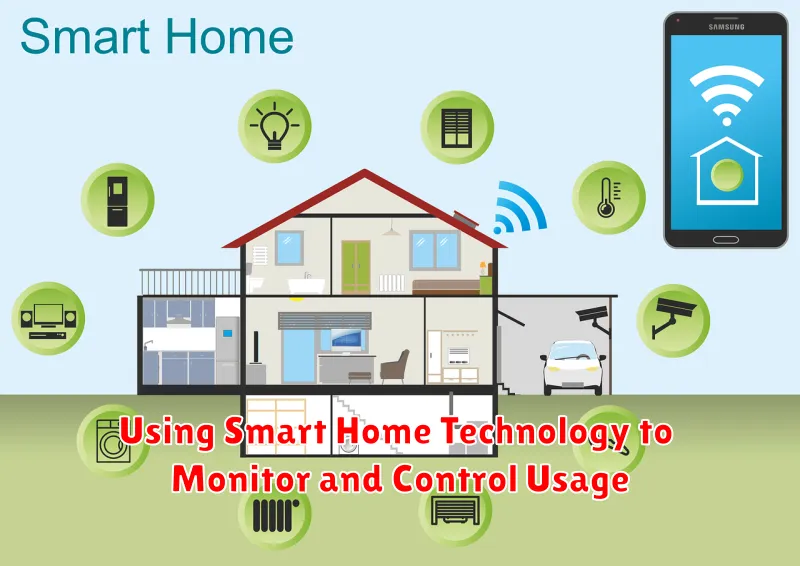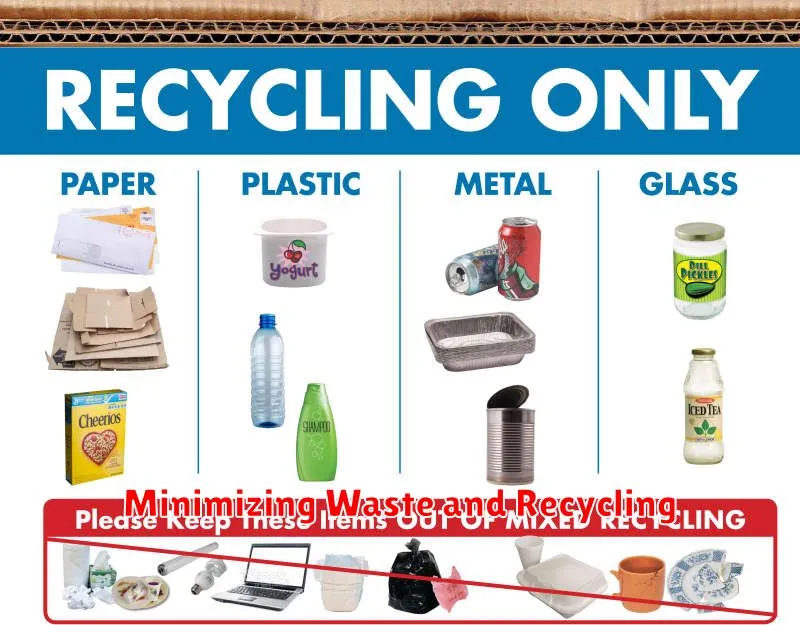Are you tired of seeing sky-high utility bills every month? It’s time to take control of your apartment expenses and start saving on those monthly utilities. Whether you’re living in a studio apartment or a spacious multi-bedroom home, there are simple and effective ways to reduce your energy consumption and lower your electric bill, water bill, and even your gas bill. From energy-efficient appliances to mindful habits, this guide will equip you with the tools to save money and live more sustainably.
Understanding Your Utility Bills
Before you can start saving money on your apartment utilities, you need to understand what’s on your bill. Utility bills typically include charges for:
- Electricity: This covers the energy used to power your lights, appliances, and electronics.
- Gas: Used for heating your apartment, cooking, and sometimes hot water.
- Water: Covers your water usage, including showers, washing dishes, and flushing toilets.
- Sewer: This fee is often bundled with water and covers the removal of wastewater from your apartment.
- Trash: Charges for trash collection and disposal.
You’ll also likely find information about your current usage, past billing cycles, and any applicable fees or taxes on your bill. Take some time to analyze your bill and understand where your money is going. This will help you identify areas where you can cut back and save money.
Lowering Your Energy Consumption
Saving money on your monthly apartment utilities can be achieved by implementing various energy-saving strategies. One crucial aspect is lowering your energy consumption. Here are some tips to help you reduce your energy usage and ultimately save money:
Turn off lights when you leave a room, even for short periods. Take advantage of natural light whenever possible. Consider using energy-efficient LED bulbs, which consume less energy and last longer than traditional incandescent bulbs.
Unplug appliances and electronic devices when not in use. Many devices continue to draw power even when turned off, known as “phantom load.” Using a power strip with an on/off switch can help easily disconnect multiple devices at once.
Optimize your thermostat. In the winter, lower your thermostat a few degrees to save energy. During the summer, raise the thermostat slightly and use fans for additional cooling. Utilize programmable thermostats to automatically adjust temperatures throughout the day based on your schedule.
Be mindful of water usage. Take shorter showers, fix any leaky faucets promptly, and install low-flow showerheads and faucets to reduce water consumption. Wash laundry in cold water whenever possible and avoid using the dryer whenever feasible. Consider air-drying clothes or hanging them up to drip dry.
Make use of natural ventilation. Open windows and doors to circulate air instead of relying on air conditioning or heating. Use fans strategically to distribute air more effectively. Close curtains and blinds during the hottest parts of the day to prevent heat buildup.
Adopt energy-efficient habits. Cook on the stovetop instead of using the oven when possible. Choose energy-efficient appliances when replacing old ones. Use a microwave instead of the oven for reheating food. These small changes can accumulate significant savings over time.
By implementing these energy-saving tips, you can effectively reduce your monthly apartment utilities and save money. By making conscious efforts to lower your energy consumption, you’ll contribute to environmental sustainability while also enjoying financial benefits.
Conserving Water and Reducing Water Waste
Water bills can be a significant portion of your monthly apartment expenses, but there are simple steps you can take to conserve water and reduce waste. By implementing these practices, you can save money on your utility bills and contribute to a more sustainable lifestyle.
One effective strategy is to fix leaky faucets and toilets. Even small leaks can waste a surprising amount of water over time. Regularly check for leaks by listening for dripping sounds or observing water pooling around faucets or toilets.
Another important tip is to take shorter showers. You can significantly reduce your water consumption by limiting your shower time. Consider installing a low-flow showerhead, which can reduce water flow without sacrificing the quality of your shower experience.
When doing laundry, only wash full loads. Running the washing machine with only a few items wastes both water and energy. Additionally, choose a high-efficiency washing machine, which uses less water and detergent per cycle.
Water your plants efficiently by using watering cans or hoses with adjustable nozzles. Avoid overwatering, as this can lead to water runoff and waste. Consider installing a rain barrel to collect rainwater for watering your plants.
By adopting these simple water-saving practices, you can make a meaningful impact on your monthly apartment utility bills and promote sustainable water usage.
Optimizing Heating and Cooling Efficiency
One of the biggest expenses associated with apartment living is utilities. A significant chunk of your utility bill often comes from heating and cooling your space. Luckily, there are several simple steps you can take to optimize your apartment’s heating and cooling efficiency and save money on your monthly bills.
First, make sure your apartment is properly insulated. Check for any drafts around windows and doors, and seal them with weather stripping or caulk. Also, consider using heavier curtains or blinds to block out heat during the summer and cold during the winter. Even small changes can make a big difference.
Secondly, be mindful of your thermostat settings. When you’re out of the apartment, turn the thermostat down in the winter and up in the summer. Even a few degrees can save you a significant amount on your energy bill. Also, consider investing in a programmable thermostat, which will automatically adjust the temperature based on your schedule. This can help you avoid unnecessary heating and cooling, saving you money in the long run.
Finally, remember to take advantage of natural heating and cooling sources. Open your windows on cooler days to let in fresh air and close them when it gets warmer outside. You can also use fans to circulate air and create a cooling breeze during the summer months. By utilizing these simple strategies, you can keep your apartment comfortable without spending a fortune on your utility bills.
Making Smart Choices with Appliances and Electronics
When it comes to saving money on your monthly apartment utilities, making smart choices about the appliances and electronics you use can have a significant impact. Look for energy-efficient models with the Energy Star label, which indicates that they meet strict energy efficiency standards. Energy-efficient appliances often use less electricity and water, resulting in lower utility bills.
Consider replacing older appliances with newer, more efficient models. This may seem like a big investment, but the long-term savings on your utility bills can offset the initial cost. For example, a new energy-efficient refrigerator can save you hundreds of dollars per year in electricity costs.
Smart thermostats can help you save money by automatically adjusting your heating and cooling system based on your schedule and preferences. They can also learn your habits and optimize energy usage for maximum efficiency.
Don’t forget about the smaller electronics you use in your apartment. LED light bulbs use significantly less energy than traditional incandescent bulbs and can last much longer. Unplug electronics when you’re not using them to prevent energy consumption in standby mode. Simple habits like these can add up to substantial savings over time.
By choosing energy-efficient appliances and electronics and implementing energy-saving practices, you can make a significant difference in your monthly apartment utility bills. These smart choices can help you save money and reduce your environmental impact.
Negotiating Utility Rates with Providers
While you may think that apartment utility rates are set in stone, you can often negotiate better rates with your provider. Before you sign your lease, take the time to research average utility costs in your area and compare them to the rates offered by your potential landlord. If you find that the rates are significantly higher than average, you can use this information to negotiate a lower rate. You can also ask about discounts for paying your bill on time or for signing a longer lease.
If you’re already living in an apartment with high utility costs, don’t be afraid to reach out to your provider and see if there’s anything they can do to help. You may be able to negotiate a lower rate by switching to a different plan or by taking advantage of a loyalty discount. It’s important to be polite and respectful when negotiating with your provider, and to be prepared to provide evidence to support your case. You may also want to consider reaching out to your local utility commission or consumer protection agency for assistance.
By being proactive and doing your research, you can often negotiate lower utility rates and save money on your monthly apartment expenses. Remember that you have more bargaining power than you may think, and that it never hurts to ask for a better deal.
Using Energy-Efficient Lighting

Switching to energy-efficient lighting is a simple but impactful way to reduce your apartment’s electricity consumption. LED bulbs are the go-to choice, offering significant energy savings compared to traditional incandescent bulbs. While they may have a higher initial cost, they last much longer, reducing the need for frequent replacements and ultimately saving you money in the long run.
Beyond just replacing bulbs, consider using dimmer switches. These allow you to adjust the brightness, ensuring you only use the light you need. For areas that don’t require bright illumination, utilize motion sensor lights, which automatically turn on when motion is detected, minimizing unnecessary energy usage.
Finding Discounts and Rebates on Utilities
Before signing up for a new utility service, it’s crucial to explore available discounts and rebates. These can significantly reduce your monthly bills and provide welcome savings. Here’s what to look for:
Low-Income Programs: Many utility companies offer assistance programs for low-income households. These programs may provide reduced rates, bill payment assistance, or even energy efficiency upgrades. To qualify, you’ll typically need to meet certain income requirements. Contact your local utility provider to inquire about available programs.
Energy Efficiency Rebates: Utility companies and government agencies often offer rebates for purchasing energy-efficient appliances, installing solar panels, or making other energy-saving improvements to your apartment. Check with your utility company or local energy office for details on available rebates and the application process.
Senior Citizen Discounts: Some utility companies offer discounts for senior citizens. Contact your utility provider to inquire about eligibility requirements. If you’re eligible, you can save money on your monthly bills.
Bundled Services: Bundling your internet, phone, and cable TV with your utility provider can sometimes lead to discounts or special offers. Inquire about bundled packages and compare prices with other providers to see if you can save.
Negotiate: Don’t be afraid to negotiate with your utility provider. They may be willing to offer you a discount if you agree to a longer-term contract or pay your bills on time. Be sure to research average rates in your area to have a solid basis for negotiation.
Finding discounts and rebates on utilities can be a simple way to cut down on your monthly expenses. By exploring the options available to you, you can potentially save a significant amount of money each year.
Weatherizing Your Apartment to Prevent Energy Loss
One of the biggest culprits behind high energy bills is an apartment that isn’t properly insulated. Weatherizing your apartment can significantly reduce the amount of heat or cool air escaping, ultimately saving you money on your monthly utilities.
There are many ways to weatherize your apartment, even if you’re limited by your lease agreement. Here are some simple and effective tips:
- Seal air leaks around windows and doors using weather stripping or caulk. This is a quick and easy fix that can make a big difference in reducing drafts.
- Use heavy curtains or blinds to block out heat or cold during extreme temperatures.
- Install a programmable thermostat to automate your heating and cooling system and reduce energy consumption.
- Upgrade to energy-efficient appliances like a refrigerator or washing machine. Check with your landlord before making major changes.
By implementing these weatherization strategies, you can create a more comfortable and energy-efficient living space while reducing your energy bills. Don’t underestimate the impact these small changes can have on your wallet.
Using Smart Home Technology to Monitor and Control Usage

Smart home technology can be a powerful tool for reducing your monthly apartment utility bills. By monitoring and controlling your energy usage, you can gain valuable insights into your habits and make changes to save money.
Smart thermostats allow you to program heating and cooling schedules based on your daily routines. This ensures your apartment is comfortable when you need it, but avoids unnecessary energy consumption when you’re away.
Smart plugs are another useful tool. By plugging appliances into smart plugs, you can monitor their energy usage and remotely control them. You can set schedules to automatically turn off appliances when not in use or track energy consumption to identify areas where you can cut back.
Smart lighting can also contribute to savings. With smart bulbs, you can automate your lighting schedules, turning off lights when not needed and taking advantage of natural light. This reduces unnecessary energy consumption and minimizes your electricity bill.
By embracing smart home technology, you can gain control over your energy usage and potentially reduce your monthly apartment utility bills. These tools provide valuable insights and automation capabilities, allowing you to make informed choices about your energy consumption and save money.
Sharing Utility Costs with Roommates
One of the biggest expenses for any renter is utilities. Fortunately, there are ways to cut those costs if you’re living with roommates. By sharing the responsibility of utility bills, you can significantly reduce your individual expenses. But how do you ensure everyone is contributing fairly? Here are some strategies:
Divide Costs Equally: This is the simplest and most common method. Each roommate pays an equal share of the total utility bill, regardless of individual usage. This is great for minimizing conflict but may not be completely fair if one person uses significantly more electricity than another.
Track Individual Usage: If you want a more equitable system, consider tracking individual usage. Install smart meters on appliances like water heaters and install a separate meter for electricity. This allows for a more accurate reflection of each roommate’s contribution to the bill.
Negotiate a Split: Sometimes, the best solution is a combination of the above methods. For example, you might divide the electricity bill equally while tracking individual water usage. This allows for a more fair and transparent system while keeping things simple.
Set Clear Rules: Regardless of the system you choose, it’s important to set clear rules and expectations with your roommates. Discuss how bills will be paid, deadlines for contributions, and any consequences for non-payment. This prevents confusion and ensures everyone is on the same page.
Sharing utility costs with roommates can save you a significant amount of money each month. While finding the right system may require some negotiation and adjustment, the financial benefits are definitely worth it.
Minimizing Waste and Recycling

One of the easiest ways to save money on utilities is by minimizing waste and recycling. The less you throw away, the less trash you have to pay for. Additionally, by recycling, you can reduce the amount of resources that are used to produce new products, which can also lead to lower costs.
Here are a few tips for minimizing waste and recycling in your apartment:
- Compost food scraps: Composting is a great way to reduce the amount of food waste you send to the landfill. You can compost food scraps in your apartment using a composting bin or by adding them to a community compost pile.
- Use reusable bags: Bring your own reusable bags to the grocery store and for other errands to reduce the amount of plastic bags you use. Reusable bags are also a great way to reduce your carbon footprint.
- Buy in bulk: Buying in bulk can often save you money on food and other household items. Just be sure to store your bulk items properly so that they don’t go to waste.
- Recycle: Most apartment complexes have recycling bins. Be sure to recycle paper, plastic, glass, and aluminum. You can also recycle batteries, electronics, and other items at designated recycling centers.
- Donate unwanted items: Instead of throwing away unwanted items, donate them to a local charity or thrift store.
By following these tips, you can minimize waste and recycle more, which can save you money on your apartment utilities and help the environment.
Lowering Your Internet and Cable Bills
Internet and cable bills can be a significant expense, especially if you’re living in an apartment. But there are ways to lower your costs without sacrificing speed or quality. Here are some tips to help you save money on your monthly internet and cable bills:
Negotiate with Your Provider: The first step is to contact your internet and cable provider and ask for a better deal. They may be willing to offer you a discount if you threaten to switch providers. Be sure to do your research and find out what other providers are offering in your area. You might even get a better deal if you bundle your internet and cable services together.
Shop Around for Better Deals: It’s always a good idea to compare prices from different providers. There are many online tools that can help you find the best deals. You can also check for special promotions or discounts that may be available.
Consider Alternatives: There are many alternative internet providers available, such as satellite internet, fiber optic internet, and mobile internet. These options may be cheaper than traditional cable internet, but they may also have limitations in terms of speed and availability.
Reduce Your Usage: You can save money on your internet bill by reducing your internet usage. This means limiting your streaming, downloading, and gaming. If you have a data cap, you can also set up a data usage tracker to help you stay within your limit.
Choose a Less Expensive Plan: Most providers offer a variety of internet plans. If you don’t need a lot of speed or bandwidth, you can often save money by choosing a less expensive plan.
Switch to a Prepaid Plan: Prepaid internet plans can be a great way to save money. You only pay for the data you use, and you don’t have to sign a contract.
By following these tips, you can significantly lower your internet and cable bills and save money each month. Be sure to check your bills regularly to ensure you’re getting the best possible deal.
Choosing a Cost-Effective Cell Phone Plan
Cell phone bills can add up quickly, but there are ways to save money on your monthly plan. Here are a few tips:
Shop around and compare plans. Don’t be afraid to switch carriers or plans if you find a better deal. There are many different plans available, so take the time to compare prices and features.
Consider a prepaid plan. Prepaid plans can be a good option if you don’t use a lot of data or minutes. You pay for the service in advance, so there’s no monthly bill.
Negotiate your bill. If you’ve been with your carrier for a while, you may be able to negotiate a lower rate. Call customer service and ask for a better deal.
Use Wi-Fi whenever possible. This will help you avoid using your data plan and can save you money in the long run. Many coffee shops, libraries, and other public places offer free Wi-Fi.
Use apps that help you track your data usage. This can help you stay within your data plan and avoid overage charges.
Take advantage of discounts. Many carriers offer discounts for students, seniors, and military personnel. Be sure to ask about any discounts that you may qualify for.
By following these tips, you can save money on your monthly cell phone bill and keep more money in your pocket.
Reviewing Your Utility Bills Regularly

One of the simplest and most effective ways to save money on your monthly apartment utilities is to regularly review your bills. By doing so, you can identify any potential areas for improvement and take steps to reduce your consumption. Start by gathering your recent bills and comparing them to previous months. Look for any significant fluctuations or unusual spikes in usage. If you notice any anomalies, try to pinpoint the cause. Perhaps you left a light on in an empty room or used a particular appliance more than usual. Once you’ve identified the source of the increase, you can make adjustments to your habits and reduce your future consumption.
In addition to looking for trends, it’s also important to check your bills for any errors or inaccuracies. Mistakes happen, and double-checking the information is crucial. Verify that your billing cycle is accurate and that you’re not being charged for services you haven’t used. You can also contact your utility provider if you have any questions or concerns.
Regular bill review can also help you detect potential leaks or faulty appliances. If you notice a sudden increase in water usage, for example, it could indicate a leak in your plumbing. By addressing these issues promptly, you can prevent further waste and save money in the long run.

